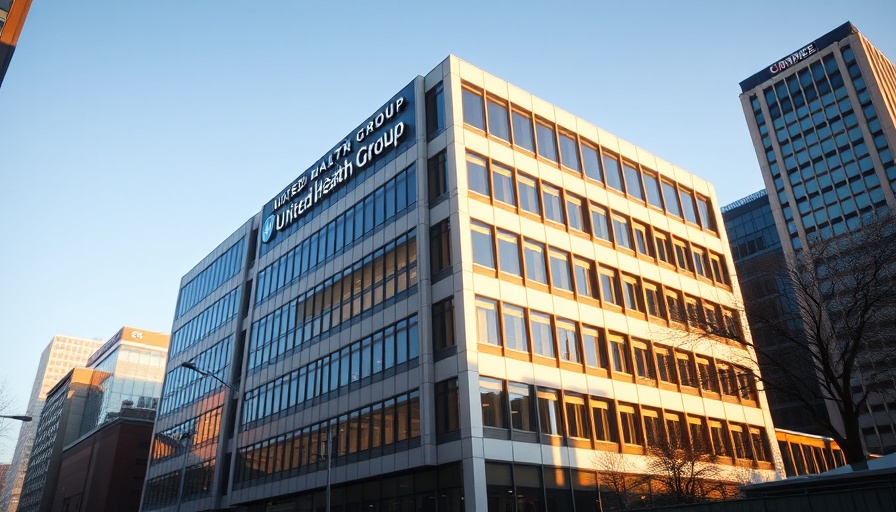
UnitedHealth's Disappointing Performance: A Wake-Up Call for Investors
In a surprising twist for one of the healthcare giants, UnitedHealth Group recently reported dismal earnings for the first quarter of the year, prompting CEO Andrew Witty to label the results as "frankly unusual and unacceptable." The Minnesota-based company, known for its vast influence in the managed care sector, has raised alarms not just within its own ranks but across the entire industry. Analysts are scrutinizing these unexpected results, fearing they may signal a troubling trend for other managed care organizations (MCOs).
Understanding UnitedHealth's Challenges
The poor performance primarily stems from two critical areas: UnitedHealthcare's insurance division and its care delivery unit, Optum Health. The insurance division has faced increased costs in Medicare Advantage, compounded by a surge in healthcare utilization that exceeded the company's expectations. Meanwhile, Optum Health has grappled with falling patient profitability, influenced by recent policy changes from the Biden administration.
Diving deeper, we see that UnitedHealth's seasoned executives asserted these challenges are addressable. However, the immediate impact has been concerning, leading the company to slash its 2025 earnings forecast by nearly 12%, setting it between $26 and $26.50 per share. This major shift has left shareholders uneasy, as the stock saw a staggering 22% drop in Thursday's trading.
Implications for the Managed Care Sector
UnitedHealth's dismal results are not merely isolated incidents; they serve as a potential barometer for the broader state of the managed care sector. Since UnitedHealth has historically led the market in predicting trends, analysts worry that other insurers may soon report similar downturns. TD Cowen analyst Ryan Langston has pointed out that this uncertainty raises questions about fiscal guidance across the entire MCO landscape.
Despite these setbacks, UnitedHealthcare managed to increase its Medicare Advantage membership by 5% compared to last year, showcasing a continued demand in certain segments. Yet, the overall volatility raises questions about future growth and profitability in light of recent trends in healthcare utilization.
Adapting to New Realities in Healthcare
For UnitedHealth, responding to rising care activity levels tied to higher premiums could serve as a double-edged sword; while they may attract more members, the operational costs could spiral if the utilization continues to outpace forecasts. The strategy of adequately pricing their plans to cover operational costs will be put to the test in the upcoming quarters.
As the healthcare landscape evolves, other companies in the sector will need to remain vigilant and adaptable. Any complacency in response to this early warning could lead them to fall short in future earnings as the entire sector navigates the intense market pressures.
Conclusion: What Lies Ahead
For anyone keeping an eye on large-scale healthcare providers like UnitedHealth, this quarter's results serve as a crucial reminder of the complexities within the healthcare system. As more implications come into focus, it is vital for investors and stakeholders to consider the ongoing trends in healthcare utilization and regulatory changes as they shape the industry's future.
For readers interested in the evolving landscape of health and wellness, understanding market dynamics like those presented in UnitedHealth's latest news is invaluable. As we witness changes in policy and operational strategies within large health organizations, staying informed can help navigate personal or community health decisions.
 Add Row
Add Row  Add
Add 




 Add Row
Add Row  Add
Add 


Write A Comment